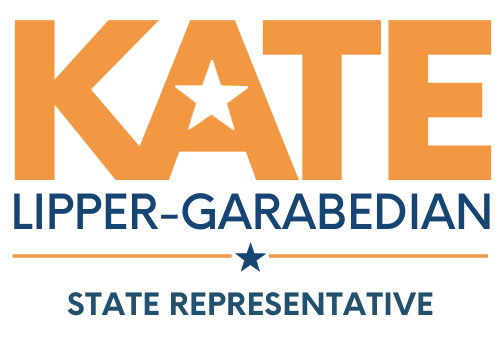State Representative Lipper-Garabedian Join Massachusetts House to Remove Outdated and Offensive Terms in General Laws, Change Massachusetts Rehabilitation Commission’s Name to “MassAbility”
BOSTON – Wednesday, April 3, 2024 – State Representative Lipper-Garabedian joined the Massachusetts House of Representatives in passing two bills that update the Massachusetts General Laws by removing out-of-date and offensive terms related to persons with disabilities, and by renaming the Massachusetts Rehabilitation Commission (MRC) as MassAbility.
“As lawmakers, we know that words matter,” said Speaker of the House Ronald J. Mariano (D-Quincy). “This legislation is our latest effort to ensure that our state laws do not use antiquated words that carry negative connotations, words that also serve as a reminder of past injustices. I would like to thank Chairman Livingstone and the entire Joint Committee of Children, Families, and Persons with Disabilities, as well as Governor Healey and the bill sponsors, for their work on this important legislation.”
“The name ‘MassAbility’ will help to reduce stigma and better reflect the strengths and capabilities of the people we serve,” said Governor Maura Healey. “We’re grateful to Speaker Mariano and the House for advancing this critical legislation.”
“I was proud to join my House colleagues in passing these two pieces of legislation to remove offensive, outdated language from our General Laws and to rename the Massachusetts Rehabilitation Commission as MassAbility, a proposal that the Joint Committee on Ways & Means, on which I sit, considered during our budget hearings,” said State Representative Kate Lipper-Garabedian (D-Melrose). “The terminology used in our state laws should reflect the strength and determination of persons with disabilities and be congruent with our inclusive values as a State.”
An Act relative to individuals with intellectual or developmental disabilities removes out-of-date and offensive language from the Massachusetts General Laws when referencing people with disabilities. The language in the bill removes all variations of outdated terms such as “handicapped,” “disabled,” and “retarded.” The bill replaces these terms with current terminology such as “person with a disability” and “person with an intellectual disability.” Additionally, the term “autistic” is replaced with “autism” in reference to Autism Awareness Month. Originally filed by Governor Healey, the House also passed legislation to rename the Massachusetts Rehabilitation Commission to MassAbility and to update the outdated terms included in its enabling statute.
The Joint Committee on Children, Families and Persons with Disabilities heard from many advocacy organizations in the disability community in support of the bill and all changes were vetted with relevant agencies, including Executive Office of Health and Human Services, Executive Office of Education, and the Massachusetts Commission Against Discrimination.
Having passed the House of Representatives, the bills now go to the Senate for its consideration.
Statements of Support:
The Arc of Massachusetts:
“The Arc of Massachusetts is grateful for the passage of the Archaic Language Bill. This legislation has been a priority to The Arc and we appreciate the efforts made by the sponsors of the bill and our legislative champions at the MA State House. Thank you to the past and present Chairs and members of the Joint Committee on Children, Families and Persons with Disabilities. Special recognition to the self-advocates who led the way and never gave up. Words hold power! The language people use is important and influences thoughts and attitudes about people and their capabilities. The use inappropriate language in society and in our Massachusetts General Law perpetuates negative stereotypes about people with intellectual and developmental disabilities (IDD). This legislation will not just create legal change but also social change. The Arc strongly supports the passage of this bill as a sign that Massachusetts is listening and will support people with IDD by using thoughtful and positive language in the laws.”
Barbara L’Italien, Executive Director of the Disability Law Center:
“Removing archaic language in legislation plays an important role in reducing social stigma and ensuring that state agencies and courts view people with disabilities as entitled to full, equal, and integrated lives in the community.”
###
